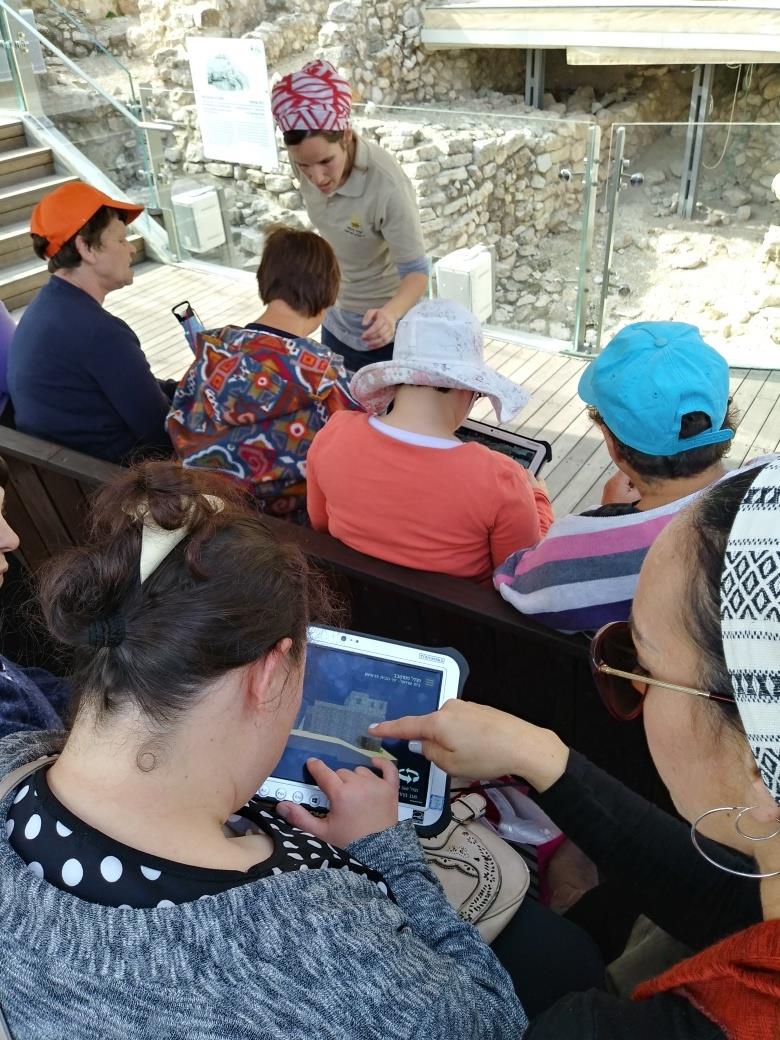Museum accessibility for visitors with intellectual disability
- Solution
- Making museums and sites of leisure cognitively accessible
- Organization
- AKIM Israel - The National Organization for People with Intellectual Disabilities and their Families
- Country of Implementation
- Israel
- Region
- Asia & Pacific
- Subregion
- MENA
- City
- 4 museums in Jerusalem, Camp David, Hadera
- Start Year
- 2014
- First published
- 31.01.2020

Solution details
“Last year I visited the City of David in Jerusalem. I enjoyed being with my friends and learning about history.” Nadra Shantizi, a woman from Tel Aviv with intellectual disabilities
AKIM Israel – the National Organization for People with Intellectual Disability and their Families – is undertaking a national programme to make museums and leisure sites accessible for people with intellectual disability. Training and support are provided to participating museums in order to adapt or create accessible installations, for example, by creating large-scale models of exhibits or automated accessible explanatory videos on TV screens. In 2018, more than 3,300 people with intellectual disability used these new opportunities.
Problems Targeted
People with intellectual disability may not be able to fully understand or enjoy museum exhibits due to inaccessible installations or complex explanations.
Solution, Innovation and Impact
The project aims to improve understanding and increase knowledge of those working in museums about accessibilities for people with intellectual or developmental disabilities. This is done by focusing on accessible and simple data, clear guidance, and easy-to-use technology in order to reduce alienation and frustration. AKIM has worked with the City of David National Park, the Technoda Science Museum in Hadera, the Hiriya Recycling Park, and the Atlit Illegal Immigration Detention Camp Museum to train staff and create new accessible exhibits. For example, two large-scale models simulating garbage mountain were created in the Hiriya Recycing Park, and six TV screens showing easy-to-understand Hebrew videos have been installed in Technoda Science Museum. Since the project’s start in 2014, more than 350 professionals, faculty, and museum staff have undergone training. People with intellectual disability were involved in the evaluation process, confirming that their enjoyment and knowledge of these museums had significantly increased since the adaptations had been made.
Funding, Outlook and Transferability
Between 2014 and 2018 the project collaborated with leading organizations that promote the inclusion of people with disabilities. AKIM and the Shalem Fund, with support of government officials covered the costs of training and management ($8,300) and of research ($77,700), while development of the accessible installations was covered by the National Insurance Institute ($222,200) and the participating museums ($55,500). Since the initial phase ended in 2018, AKIM has continued to train staff in other leisure organizations and institutes to duplicate the programme, including the Israel Nature and Parks Authority and the Jewish National Fund, which seek to apply the idea to forest areas. Training has also been given to new staff starting at two of the original museums as well as to professors and students working in the area of Inclusive Education. The long-term aim is for professionals and coordinators across a range of fields to make every aspect of their work more cognitively accessible.
Media
Related information
- Connections
- 2
-
Organization
- People